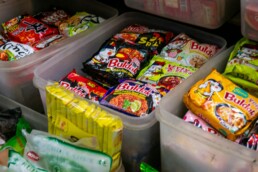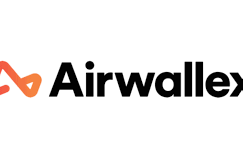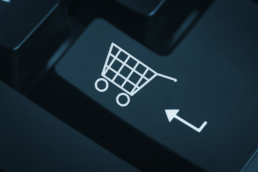The largest online flea market in Korea is Danggeun Market (Karrot). It is an app that acts as a neighborhood marketplace, and community app. Karrot successfully raised $162 million for its Series D round with a valuation of $2.7 billion. To date, the startup has raised over $205 million in funding from VC firms like Capstone Partners, Strong Ventures, DST Global, Aspex Management, Reverent Partners, Goodwater Capital, SoftBank Ventures, and Kakao Ventures. Experts see Danggeun Market as the next Korean startup unicorn.
The startup goes by Karrot outside of Korea and has already expanded into the United Kingdom and will be looking to expand into more international markets in 2023. Their number of monthly active users currently stands at over 33 million. While they have not yet been able to make a profit, they are incorporating the same growth-at-all-cost strategy set up by Coupang. Coupang has shown that gaining users and showing growth ultimately leads to bigger funding rounds. In addition, in 2023, they will look to use big data to launch an advertising solution for marketing professionals.
How Danggeun Market/Karrot Works
 Karrot is a peer-to-peer marketplace that only shows the listings of people that live near your area. Users will only see listings within a six-kilometer radius (will be extended for rural areas). Once downloading the app, users can look at all the second-hand goods uploaded by people living near them. Users can directly communicate with the sellers. Most transactions are done in cash but can also be done via mobile payment. In fact, the final price is negotiated by the seller and the buyer only. It is not uncommon for prices to be discounted in person.
Karrot is a peer-to-peer marketplace that only shows the listings of people that live near your area. Users will only see listings within a six-kilometer radius (will be extended for rural areas). Once downloading the app, users can look at all the second-hand goods uploaded by people living near them. Users can directly communicate with the sellers. Most transactions are done in cash but can also be done via mobile payment. In fact, the final price is negotiated by the seller and the buyer only. It is not uncommon for prices to be discounted in person.
All the user’s identities need to be verified through their mobile number and location for safety reasons. It is up to the buyer to arrange for the transportation of the item. It also has a review system that allows users to rate both sellers and buyers. Moreover, there is a feature called Karrot Help, a helps match people with neighbors who need help with services such as running errands or freelancer work.
They have over 18 million monthly active users with users in the prime online shopping demographic of 25-50-year-olds. The advertising solution will target users based on consumer behavior in specific regions. This advertising platform is to reverse their continued profit loss which has been estimated at $ 25 million a year.
The Founding of Korea’s First Mobile Flea Market App
 Danggeun Market was founded in 2015 by Gary Kim and Paul Kim who both worked at KakaoTalk. Kakao Talk is the largest messaging app in Korea. While there were online flea market websites in Korea there were no apps. Danggeun Market was explicitly designed as a mobile app where people in Korea can quickly take a picture of their second-hand goods and uploaded it to the app to sell. Very fast, very easy. The addition of the number of listings shown to be within 6 kilometers does not clutter up the number of listings.
Danggeun Market was founded in 2015 by Gary Kim and Paul Kim who both worked at KakaoTalk. Kakao Talk is the largest messaging app in Korea. While there were online flea market websites in Korea there were no apps. Danggeun Market was explicitly designed as a mobile app where people in Korea can quickly take a picture of their second-hand goods and uploaded it to the app to sell. Very fast, very easy. The addition of the number of listings shown to be within 6 kilometers does not clutter up the number of listings.
Also, users know that the items being sold are within their neighborhood which means it will be easy for them to pick them up or check them out before the purchase. However, what Gary and Paul feel differentiates Dannggeun Market from other online markets is the interaction among your fellow neighbors. They feel that the app will play a major role in neighborhood networking and community building.
The app does not charge listing fees and is free to use. In addition, it does not take any percentage of the sale of the items. Instead, Danggeun Market makes money through hyperlocalized advertising. This is what attracts so many users to the app. Since 2015, the app has seen its monthly active users double year after year. It is now the second-largest shopping app in South Korea behind Coupang. It is estimated that the average Karrot user spends about 20-30 minutes on the app.
Karrot Pay (Danggeun Pay)
Karrot will be looking to get into the Fintech space with Karrot Pay (Danggeun Pay). This will allow over 300,000 local small and medium businesses to use their platform as it offers an offline to online (O2O) service. Therefore, Karrot customers will be able to access local businesses in regard to fresh food, takeout orders, cleaning services, education, real estate brokerage, and even used cars in their local communities. The Karrot Pay payment service is expected to launch in late 2021.
Popular
Related Posts






